How does it works
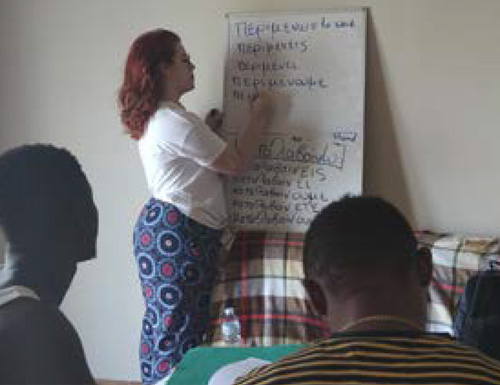
Education frees and emancipates.

It’s not a hotel: it’s everyone’s responsibility.
- Residents are totally forbidden to engage in drug consumption and dealing, regardless of whether it happens inside or outside the programme’s house.
- The drinking or storing of alcohol is totally forbidden inside the house.
- Any contact or belonging to any gangs, mafia, smuggling, or scamming network is expressly forbidden.
- Residents and staff are expressly forbidden to bring anyone (friends, family, romantic or sexual partners etc.) from outside the programme into the house (visits, sleeping, etc.).
- No violence (verbally or physically), racism, or any other form of discrimination is allowed in the house. Any instance of violent or discriminatory behavior can justify immediate expulsion of the programme.
- Attendance to all classes, tests, activities and general meetings is compulsory for all residents.
- Timely completion of all tests and homework is compulsory for all residents.
- Residents can request permission from a staff member to miss an activity because of an important commitment, such as a medical appointment, an appointment with Greek authorities, a job interview, or to attend school or work. Residents can only leave a scheduled class or activity after receiving permission from a staff member.
- You must respect fellow housemates, staff members, volunteers and the program’s rules.Instances of disrespect to the members of this program or the program’s rules will be taken into consideration in your evaluation. Serious instances of disrespect can cause a resident’s immediate termination of the programme.
- Do not make any noise after 22h and before 7 am. Do not turn on the lights, generate noise, or pick up phone calls in the bedroom at night, when other roommates are sleeping. Please respect the neighbors’ and housemates’ sleeping times.
- Residents must carry out a deep cleaning once a week. The rest of the week, every resident and staff member must clean immediately after themselves. Promptness in cleaning after oneself is particularly important after using the common kitchen or bathrooms. It is everyone’s job to keep all parts of the house fully clean.
- The food should be well administered. When cooking for a group, be sure of how many people are eating, and of any diet restrictions. Do not waste food.
- All beneficiaries will contribute with chores such as cleaning, tidying up the house, going to the market, and cooking.
- All beneficiaries will clean after themselves when using common spaces, Residents will keep their beds and personal space in their bedrooms clean and tidy, for the benefit of their fellow housemates.
- Make a good, conscious use of heating, air conditioning, washing machine, water, electricity and other resources. Turn off the water heater after showering. Only run the washing machine with a full load of laundry. Do not leave lights or heaters on in empty rooms.
- Do not move any furniture out of the house without permission from the programme staff. Please, keep the house in order and do not damage anything.
- Whenever there is a community expenses bill on or under the door, please let us know immediately.
- You will receive one copy of the key to the house that you need to return to the organization when you leave the programme. In case you lose them or break them, you will need to make a new copy for your personal use and return it to the organization at the end of your stay. Do not share your key with anyone outside the program.
- We will have a weekly meeting that is compulsory for everyone. The date will
always be confirmed in advance
Participation contract in mother tongue.
After coordination sieve and interview, candidates accepted in the program are officially invited to integrate the team and present themselves in the designated apartment. The check-in process is
simple and new participants first receive their contracts with an initial duration of six months.
There is no rush. They must read it item by item, taking as much time as necessary before signing it. We always have a coordinator available to solve any doubts. Although most communication of Planeta de TODOS is in English, we offer the contracts translations in all mother tongues or official languages of the countries of origin: Arabic, Farsi, French. Each beneficiary and the coordination must sign both copies, and for each party is handed a copy of the document.
After signing up, we provide a welcome kit that consists of toothpaste and toothbrush, mouthwash, nail clippers, shampoo, pillow, sheet and duvet. In addition to copies of keys, new residents also receive a handbook for humanitarian contacts across the country. Finally, a small tour is taken to teach, little by little, how the house works, from wifi to the apartment’s heating system.
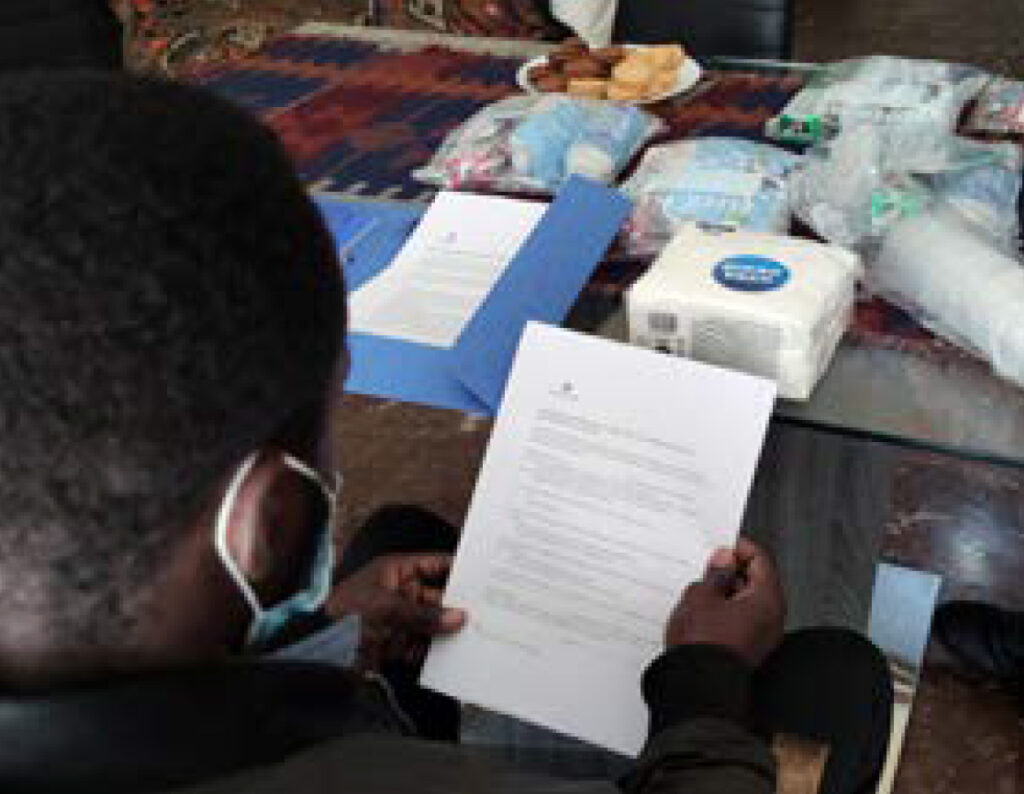
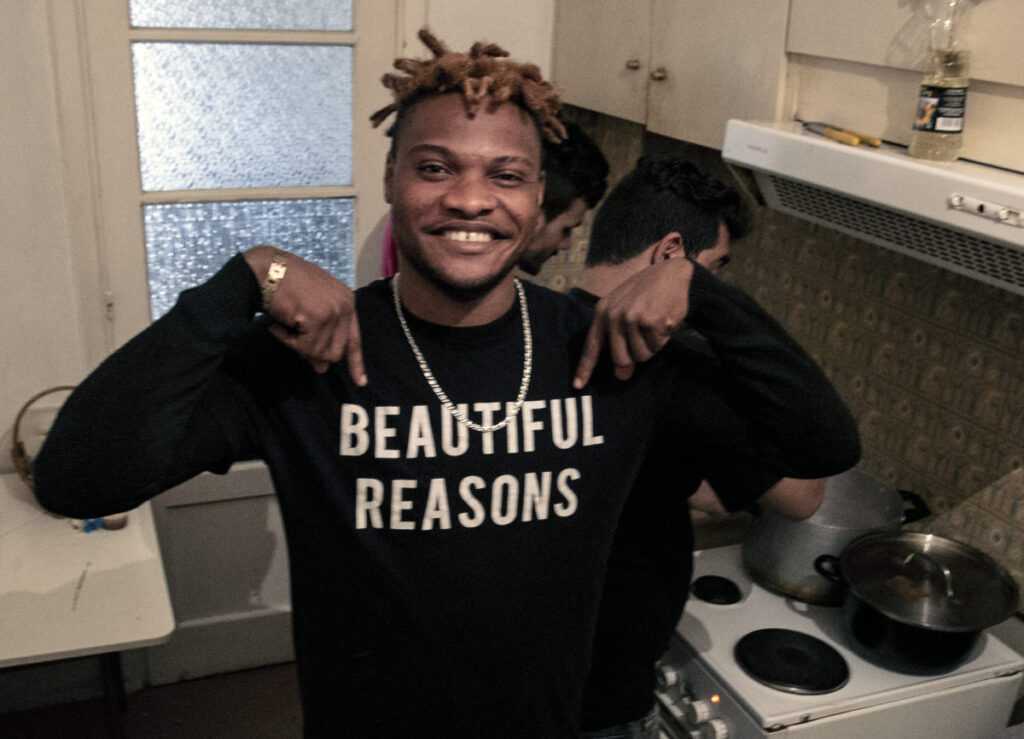
Renting apartments and deconstructing xenophobia.
Renting a property on European soil for housing purposes for immigrants is one of the most challenging tasks in the entire scope of the project. There is still great resistance from the local community, not to mention racism and/or xenophobia, which is based in the lack of information. In Rome, for example, more than three months passed without any acceptance of our proposal,despite bank and contractual guarantees. It took a campaign on social media to finally find someone who was willing to accept African boys.
Gradually, Planeta de TODOS team gained experience and transmitted to the residents the importance of taking care of properties, paying attention to the good coexistence with neighbors as well. In Greece, for instance, there is a siesta time, usually between 3 pm and 5 pm. A cultural aspect that must be respected. That means no loud music or phone conversations on the balcony during the siesta.
We also value the sharp payment of any bill related to the apartment and we always invite owners to visit the residence and meet the guys. In Rome, on several occasions, the owner had dinner with our residents and even brought her children. This transparent and respectful relationship brought important results: three apartments previously rented by Planeta de TODOS are now under the responsibility of former residents. Now emancipated and with employment contracts, they assumed responsibility and until today enjoy coliving.
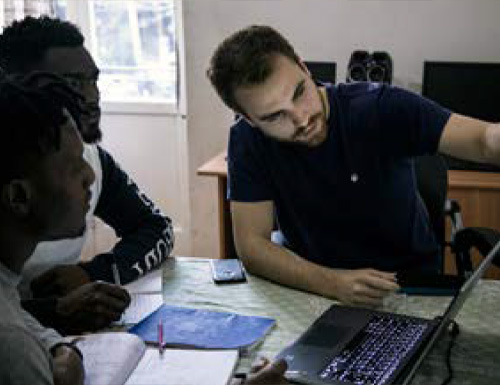
Demystifying labor market.
Financial independence is essential during the emancipation process. There are many cultural
obstacles to be overcome so that the resident feels capable and motivated to perform new functions or
even take positions already held in their countries of origin.
Our health care protocol.
The socio-labor integration project cannot assume any type of responsibility regarding the program’s beneficiaries physical and mental health. However, partnerships with other nongovernmental organizations have proved to be very effective in shortening the long wait for medical appointments within the public health system.
In Athens, the most effective joint venture was with the German NGO Medical Volunteers International (MVI). With a medical staff from different specialties, our residents had the opportunity of quick treatment against various illnesses, including free medication.
MVI is also responsible for the medical check-up process for each of the successful candidates that enter the program. From this process, a “medical passport” is created for each beneficiary, which is constantly monitored. The team also has dermatologists, essential in the process of identifying skin diseases, which unfortunately are common in refugees and asylum seekers who had lived on the streets of the Greek capital.
Personal legal assistance
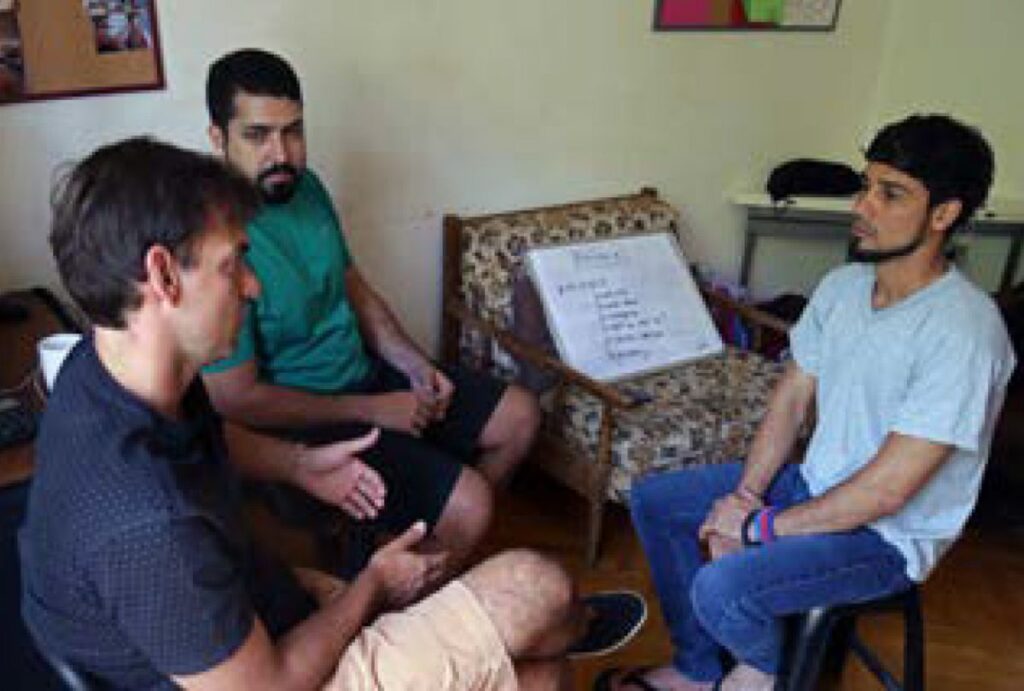
Most beneficiaries of the alternative housing program Planeta de TODOS are worried about what to eat or where to sleep. They are not aware of their rights and duties as an asylum seeker or refugee recognized by the local government. Although we
do not have lawyers within our organizational chart, the start of a collaborators network for efficient legal assistance was essential. It is even more important when you think about the constant changes in immigration law.
The importance of technology
It is not new that knowing basic computing techniques such as the Office package is essential in the attempt to enter virtually any job in the world.
However, immigrants from several countries, especially sub-Saharan Africa, arrive in the Old Continent with little or no knowledge of computers. Even though they communicate relatively well with their smartphones, there is still a huge gap in terms of unassisted use of hardware and software. Therefore, we have established within Planeta de TODOS some basic premises regarding specific technologies workshops.
Responsible administration
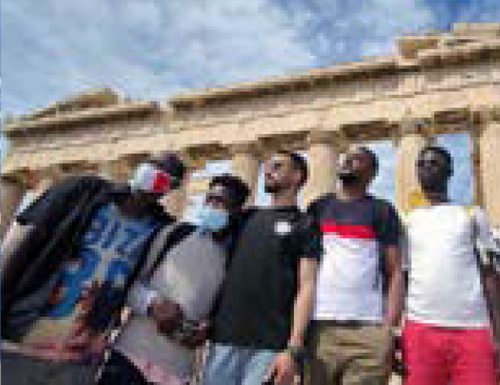
One of our cornerstones is to break the concept of “this is not mine, so I don’t care”. Coming from refugee camps or other social projects that provide nothing more than a pseudo-home for survival, immigrants on European soil lack the idea of responsible administration. They really do not know what are the financial implications and responsibilities for a housing project. In short, following the idea that “you are not in a hotel”, they must learn the basic concepts of how to manage a home and how to make use of communal services, such as energy and water, for example. After all, if the final idea is emancipation, why not learn how to manage a house from the beginning?
Cooking and gettingtogether
Ask anyone who has ever been to any outrageous refugee camp across Europe and waited in line for hours to get a plate of food. Poor lunchboxes with pasta, cold rice, pieces of chicken and skin, boiled potatoes with no salt…The list of bad examples is too long to show something simple: lacks dignity. It also lacks the understanding of the taste and nutritional needs of those who need a minimum of caring.
We understand within our social project that we should listen to our residents, and not impose flavors that they don’t want to or are not yet ready to try. We also understand that cooking is one of the few remaining ties to their country of origin and this must be honored. More than that, it was also clear that gastronomy has strengthened ties between coordinators, volunteers and beneficiaries. New flavors promoted a weekly get-together after
five hard working days for all parties.
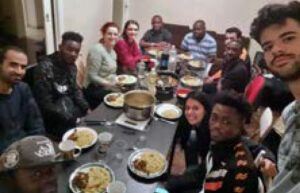
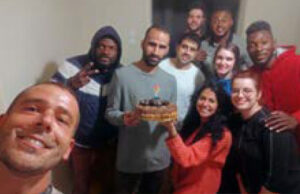
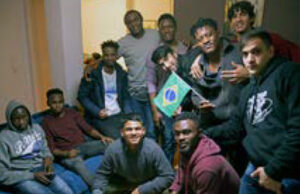
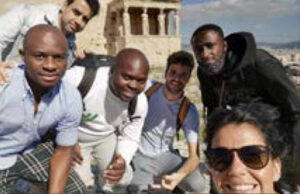
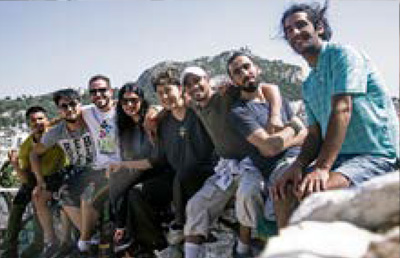
Rediscovering leisure
1. Making peace with the sea
Athens and Rome are coastal cities – with beaches very close to the capitals. As the majority of immigrants arrive in Europe in small boats on quite traumatic trips, organizing excursions to the sea has become a light and relaxed way for our residents to “make peace with the sea”. Little by little, we organize picnics and small activities for those who want to learn how to swim and/or
lose fear. No incursions far from the shore: the idea has always been relaxation and leisure, always with appropriate security measures.
2. Discovering cultural wealth
Considered European capitals of art and open-air museums, Rome and Athens have lots of cultural wealth to offer not only for tourists, but also for those who are forced to be integrated into local society. That’s why we always promote excursions to places such as Acropolis, Parthenon and Colosseum. Through voluntary help of local guides and teachers, our tours were and continue to be an important tool for immigrants to understand a little bit more about both societies and their legacy.
3. Personal training
Through an agreement with local gyms and occasional donations, we were able to offer a personal training routine – especially before the pandemic period. Our residents have the opportunity to access a bodybuilding gym free of charge. More than that, we offer on-site monitoring on how to use each device, how to obtain better performance and avoid injuries. Basic instructions along with nutrition workshops help them understand that there is no point in lifting kilos and more kilos if you are not well fed and giving your body the energy it needs to perform any physical activity.
4. Anti-Stress soccer matches
The favorite sport among all residents who have been with us, soccer has always worked as a way of relieving daily stress. Whether in confrontations against other organizations in friendly matches, or even between those who are part of Planeta de TODOS, playing soccer was by far the most important physical activity practiced within our program. Especially because Athens provides fields and courts for public use, with no need for payment.
5. Happy Birthday To You
When we buy a cake and celebrate, for the first time, a resident’s birthday, we hear “this is the first time someone has ever sung happy birthday to me”. Among the cultural aspects within our residents, there was no celebrating in a little more effusive or special way. To change that, we create a birthday calendar to make sure no birthday goes blank.

Follow up
After the emancipation process concluded, following the program’s exit, the coordination of Planeta de TODOS remained in contact with former residents in order to monitor personal and work evolution of each one in European territory. What social integration challenges do they face that are still barriers? We prioritize advice on financial education and how to manage personal expenses, especially for those who help support family members still in their countries of origin. We are no longer responsible, but following up is important to
understand where we got it right and where we went wrong in the evolution of each of our beneficiaries. Keeping up helps us improve the program.
Volunteering and training
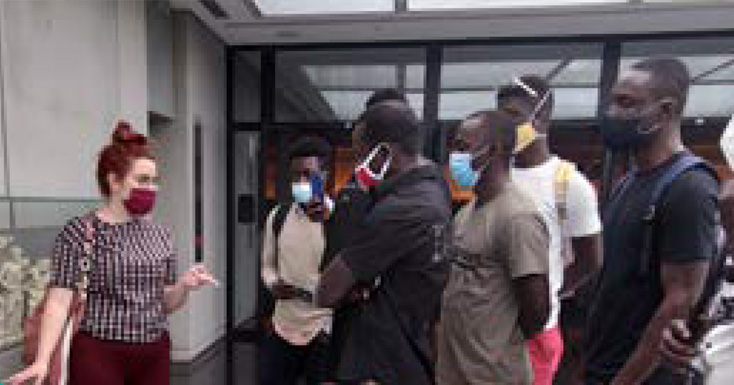
Planeta de TODOS is a social project that emphasizes volunteering as it is a tool for joint transformation. Not only participants benefit from new paths, but also everyone who is part of this long process. We encourage candidates with activist bias and/or social science background.